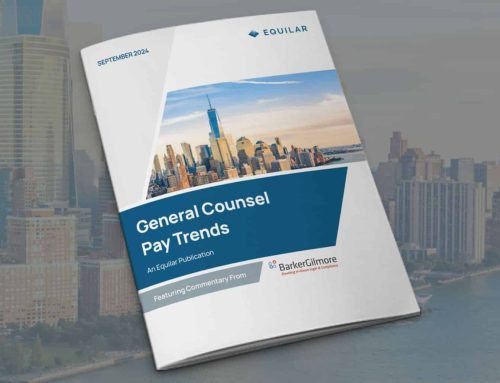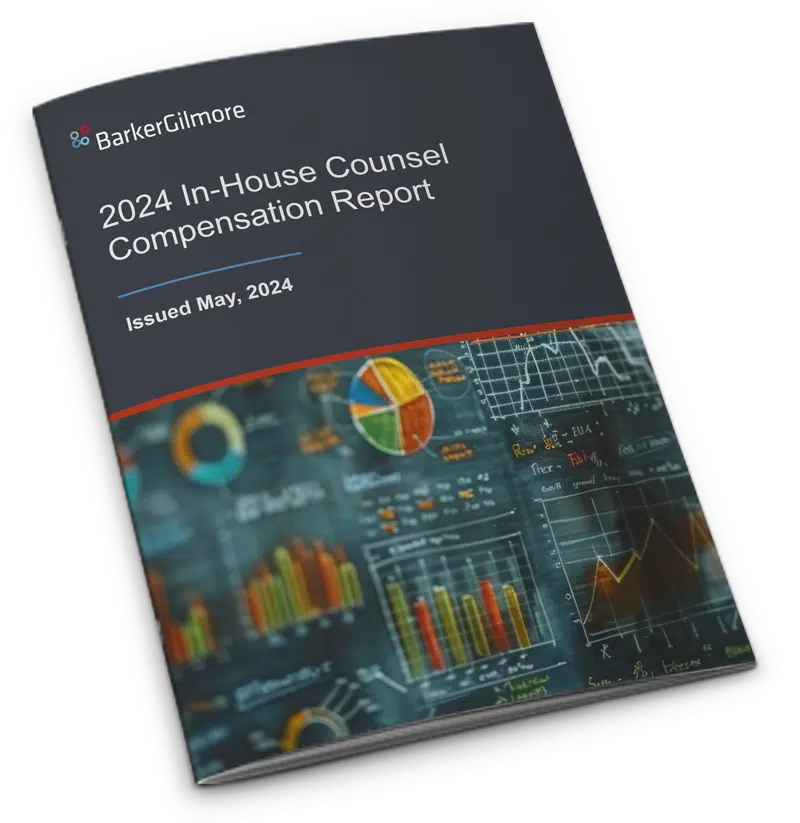Thinking of succession planning might make some General Counsel feel like it is time to prepare for their retirement or dismissal. However, succession planning can be a positive experience for the GC and benefit the legal department, plus it is a vital component of corporate governance.
In the GC AdvantageSM webinar, “A General Counsel’s Guide to Succession Planning,” Jack Zemp, Vice President, Chief Legal Officer; Americas, and Secretary of Allianz Partners, and Paulette Dodson, former General Counsel and Corporate Secretary of Alight, Inc., joined me for a conversation regarding the General Counsel’s role in succession planning. This article is a summary of our discussion.
Benefits of Succession Planning
Aging, retirement, death, and accidents are negative scenarios that General Counsel associate with succession planning. Nonetheless, succession planning benefits the GC, the legal department, and the company through a focus on talent retention and development, continuity of the legal department, and the GC’s leadership.
Talent Retention and Development
Lawyers want to grow and know of any skill gaps. Succession planning involves thinking about how to develop your reports for positions within the company. This development can keep employees engaged and fulfilled, giving them a reason to stay.
Succession Plans Demonstrate Leadership and Ensure the Success of the Legal Department
Even if the legal department is a team of one or two, consider creating a succession plan to ensure the department’s continued success. Succession planning is also an opportunity to show that, as a GC, the department’s leadership is being managed proactively.
Think about succession planning in terms of the organization and not just as an individual. It is not about you, but what comes after you, when thinking about the company.
- Understand the core skills needed for the GC position and communicate those skills to other stakeholders in the company. Then, the different stakeholders can buy in and provide their agreement about the trajectory of the GC role.
- Align the succession planning for the GC role with the organization’s strategic planning. Ensure the legal team has the right talent for the organization when moving forward. Succession planning seeks to reaffirm and assure the value of the law department.
- Evaluate the short- and long-term plans for the position. Consider each business area while crafting a plan because all business clients need to be continuously served.
- Think about who can fill the GC role and successfully serve the board. The GC serves a critical role in advising the board. When considering successors, be sure they are lawyers who can demonstrate executive leadership and presence and upon whom the board can rely.
Keeping the Potential Successor Engaged
Once potential successors have been identified, a vital concern is keeping them engaged if you are not yet planning to leave. Thus, part of succession planning is ensuring these successors feel fulfilled while waiting. This also helps the potential successor develop and stay engaged.
Find New Opportunities for the Successor to Grow
Continue to find new opportunities for the attorney to develop skills and build new relationships. Help them grow in terms of influence and insight into the board.
Consider the lawyer’s growth during the next talent assessment period. Speak with potential successors to understand their goals and desires. Encourage potential successors to pursue their interests and assign tasks to each attorney where each can have the most impact.
Exposure provides chances for self-assessment. Attorneys can note what made them uncomfortable or what to learn to do better. Encourage attorneys to reflect on the situation and ask how they could have been more effective.
Provide the Successor with Opportunities to Lead Projects
Step back from taking the lead on projects and let your successors direct; allowing them to take the lead helps with engagement. It is also another opportunity to analyze the successor’s skills.
Offering opportunities to lead projects allows successors to work on their management skills, which many successors need to develop. Some employees are good attorneys but have difficulty transitioning to being good managers. To be a GC, successors must learn to manage and delegate; leading a project is an opportune time to develop those skills.
Sponsor the Potential Successor
Sponsoring involves advocating for the colleague to get appointed to committees and task forces, to present to the board, and be a part of the business. It lets the organizational leaders hear from the successor.
Sponsorship helps you identify where coaching would benefit the successor and where the person could grow. Putting team members into uncomfortable scenarios is an opportunity to analyze the work the potential successor is doing.
Include the Successor in Legal Department Financial Planning
If your successor will need to manage the legal department’s budget, the potential successor must learn about and engage with the financials. The successor needs to know and understand the business of the law department and how to work with the data.
When building the budget for the following year, include the potential successors. Have them think about external resources or the projects they might want to do and involve them in developing a budget for outside consulting and attorney fees.
Communicating Succession Plans
In some companies, the organization may require annual formal succession planning. Each employee has a session to discuss where they fit into the hierarchy of the legal department. Jack, for example, noted that he takes this time to discuss his employee’s strengths, weaknesses, and goals. The board is aware of the formal process his company has implemented for succession planning.
Be transparent with the team members about being potential successors. Identify younger team members who may be on the path to being a GC one day. If the attorneys would like to do that, continue discussions with them about the role.
Feedback from Senior Leaders
Have conversations with the senior leadership team members to get a feel for whom leadership could imagine working beside and who has the skills to be the successor. These conversations provide feedback from people outside the HR processes. Other leaders can weigh in with thoughts about the legal team members and where there are gaps in the legal team or a person’s skills. This is also a way to inform the leaders about thoughts on potential successors and get buy-in from the leadership team.
Get a potential successor in front of the decision-makers with power and influence. The successor needs to build relationships with individuals in different business lines. Plus, the other leaders must buy into the successor’s journey to the GC role. In a larger company, this is critical because everybody may like a particular lawyer and be less likely to approve a successor because it is unclear what each person does and what value the person brings.
Call out the successor and their work when meeting with senior leaders so other leaders can see the difference the successor makes for the organization. Highlight the successor’s work and how the department would not be effective without their contributions.
Handle Concerns with the Growth of the Potential Successor
See if the potential successor will fit the GC role with the right coaching and leadership. When multiple people are in line for the GC role, competition raises people’s performance, and it may be possible to distinguish between potential successors.
As you see less potential for progress from a successor, de-emphasize the GC role and the attorney’s place in the hierarchy. Focus on the employee’s growth. Check in with the attorney on desired next steps. The goal from there is to find another suitable role for the employee.
Remember, the goal of the legal department is to provide legal services at a high level. You want the team to be happy, engaged, fulfilled, and proud of their work. Who the successor will be is a secondary concern to ensuring the department provides valuable services without a break.
Final Tips for General Counsel Creating a Succession Plan
As you proceed with succession planning, remember:
- Individuals need to understand and pick apart the role of the GC. The best GC is not just the best insurance or employment lawyer. The General Counsel must understand the organization’s needs and apply talent to those changing needs.
- Use an outsider’s view with the benefit of being an insider when analyzing the company. What makes the company unique? Where do the in-house attorneys provide the most value? Ensure potential successors are in a position to benefit the company.
- You are the coach, and your attorneys in the legal department are the players. As a coach, maximize each player’s performance and give some players a chance to be the assistant coach.
- Help potential successors get exposure by prioritizing the work for them. Give the potential successor exposure to communicate with senior managers, opportunities to delegate, and insight into different lines of business within the company.
Unlock the path to seamless leadership transitions with BarkerGilmore’s GC Succession Services. Whether you are strategizing for the retirement of a current General Counsel or simply interested in planning for the future, our trusted advisors can help your organization navigate executive changes confidently, ensuring continuity and growth.
Audrey Rubin and our team of professionals are happy to help accelerate the initiatives that you’re already pursuing or to supplement your current strategic thinking to help you realize your vision. Please reach out if you or your organization may benefit from our recruiting, leadership development and coaching, or legal and compliance department consulting services. Let BarkerGilmore help you build and optimize your legal and compliance departments.
Connect with a legal recruiting advisor
* indicates required fields







